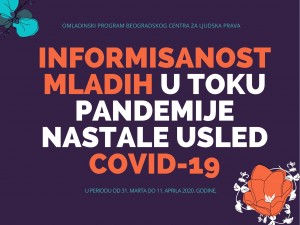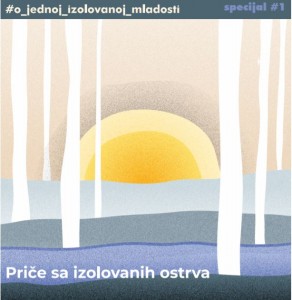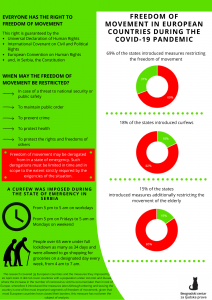A group of civil society organisations filed an initiative with the Serbian Constitutional Court to review the constitutionality and legality of the Order Restricting Movement on Roads Leading to Asylum and Reception Centre Facilities and Grounds adopted on 6 May 2020. We believe that the Order, which prohibits refugees, asylum seekers and irregular migrants from leaving Asylum and REception Centres in the Republic of Serbia, amounts to unawarranted and disproportionate restriction of their right to liberty and security of person and their deprivation of liberty.
The impugned Order was issued by the Health Minister to prevent the spread of COVID-19 in the territory of the Republic of Serbia, under Article 52 of the Act on the Protection of the Population from Communicable Diseases, which authorises him to impose measures restricting movement in specific areas in which an emergency situation has been declared. However, the government did not declare an emergency situation in any part of Serbia where Asylum and Reception Centres are located after it lifted the state of emergency, which lasted 53 days, from 15 March to 6 May 2020.
This measure does not fulfil the proportionality requirements either. Furthermore, the prohibition to leave the Asylum and Reception Centres is not strictly limited in time given that it will remain valid until the risk of COVID-19 spreading in Serbia ceases to exist.
Refugees, asylum seekers and irregular migrants have for nearly two months been locked down in Asylum and Reception Centres, many of which are seriously overcrowded and some of which suffer from substandard hygiene. This Order continues preventing them from directly contacting people outside the Centres, including their legal representatives, psychologists, psychiatrists and other people extending them various forms of support. The impugned Order does not include even an explanation of why the purpose of the restriction could not have been achieved by milder measures. Nor does it explain which medical and other circumstances led the authorities to conclude that they
had to prohibit all refugees, asylum seekers and irregular migrants from leaving the Asylum and Reception Centres given that even the measures prohibiting the freedom of movement of the categories of the population considered the most susceptible to contracting severe forms of COVID-19 ceased to be effective when the state of emergency was lifted. All of this indicates that the impugned Order is incompatible with Article 21 of the Serbian Constitution, which prohibits discrimination on any grounds.
By signing and ratifying the international Convention Relating to the Status of Refugees, the Republic of Serbia undertook to accord to refugees lawfully in its territory the right to choose their place of residence and to move freely within its territory, subject to any regulations applicable to aliens generally in the same circumstances.
The submitters of the initiative call on the Serbian Constitutional Court to issue a ruling initiating the review of the constitutionality and legality of the Order. We are of the view that a joint action of solidarity is necessary to ensure that refugees, asylum seekers and irregular migrants are treated the same as all other categories of the population in the Republic of Serbia.
The initiative to the Constitutional Court was submitted jointly by:
Belgrade Centre for Human Rights
HCIT – Humanitarian Center for Integration and Tolerance
Indigo – Group for Children&Youth
Praxis










